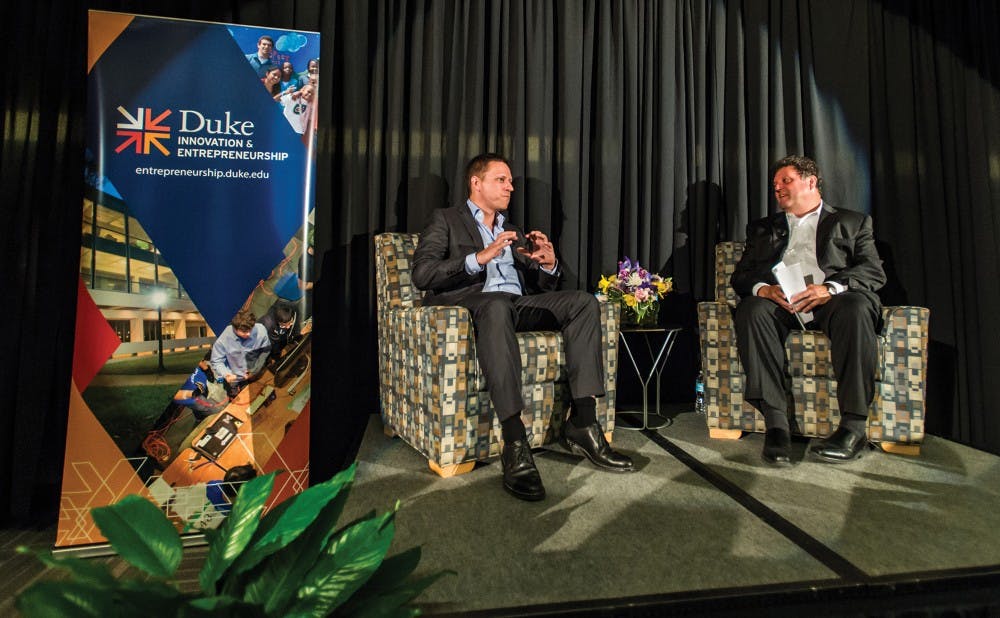Venture capitalist and entrepreneur Peter Thiel spoke on campus Monday as part of the Duke Innovation and Entrepreneurship Initiative Monday.
Thiel—the billionaire cofounder of PayPal, also known for being the first outside investor in Facebook—spoke about his experiences in entrepreneurship and the changing nature of startup companies. A Stanford alumnus, Thiel has also supported young entrepreneurs through his foundation’s Thiel Fellowship, formerly known as the 20 Under 20 Fellowship, which gives students money to put off college and start businesses. His speech Monday focused on the interplay between competition and capitalism, as well as how to create a niche for rising entrepreneurs.
Thiel explained that entrepreneurship is difficult to define and even harder to teach.
“Every moment in the history of business and technology happens only once,” he said. “The next [Mark] Zuckerberg won’t be in social media and the next Bill Gates won’t be designing operating systems.”
Thiel explained that he believes an aspiring entrepreneur should be able to mention something that few people agree with them on. Key developments in business come in new fields with small markets, he said. Rather than aiming for a small share of a large market with many factors and competitors preventing profit, entrepreneurs should aim for large shares of small markets as a more effective way of doing business.
PayPal, for example, went from owning zero percent of its market to 40 percent in under six months when it was founded in 1998 at a time in which payment was still a small business.
Thiel also expressed his belief that the current culture is preventing many technological advances due to a hostility to science—which manifests itself even in Hollywood films about destructive robots and apocalyptic computers. This is preventing the pairing of globalization and technological growth, which he said often go hand in hand.
He closed his talk by asking the audience, “How can we go around developing our so-called developed world?”
A question and answer session—facilitated by Eric Toone, vice provost and director of the Duke Innovation and Entrepreneurship Initiative—featured questions submitted on social media and by email. Questions ranged from how PayPal plans to address Facebook and Apple’s recent forays into online payment to broader topics, including the problem of group polarization in entrepreneurial circles and innovation in government and citizenship.
One questioner asked Thiel about what he thinks universities need to be doing in order to facilitate innovation and research, particularly in relation to his belief that some of the best innovation occurs outside of a college setting.
Sometimes research doesn’t translate to products and innovation, he said, pointing to theoretical and esoteric research which is often not grounded in an immediate consumer good.
Thiel also discussed how storytelling and advertising are related. He explained that if a business can be successful in a single “channel,” that will be enough, and that oftentimes businesses try to spread themselves too thin and fail to reach any consumers well.
He also emphasized the need for businesspeople in Silicon Valley, highlighting the fact that researchers and engineers often believe that their products will sell themselves and fail to find a channel through which to reach consumers.
Student responses to the sold-out talk were positive.
“What I wanted to know is why a guy as educated as he is would go for something so different in his 20 Under 20 Fellowship,” said Shreya Vora, a junior. “Would these ideas of dropping out of college work outside [of a certain elite background]? I’m not entirely sure, but I thought he had some good points.”
Get The Chronicle straight to your inbox
Signup for our weekly newsletter. Cancel at any time.

